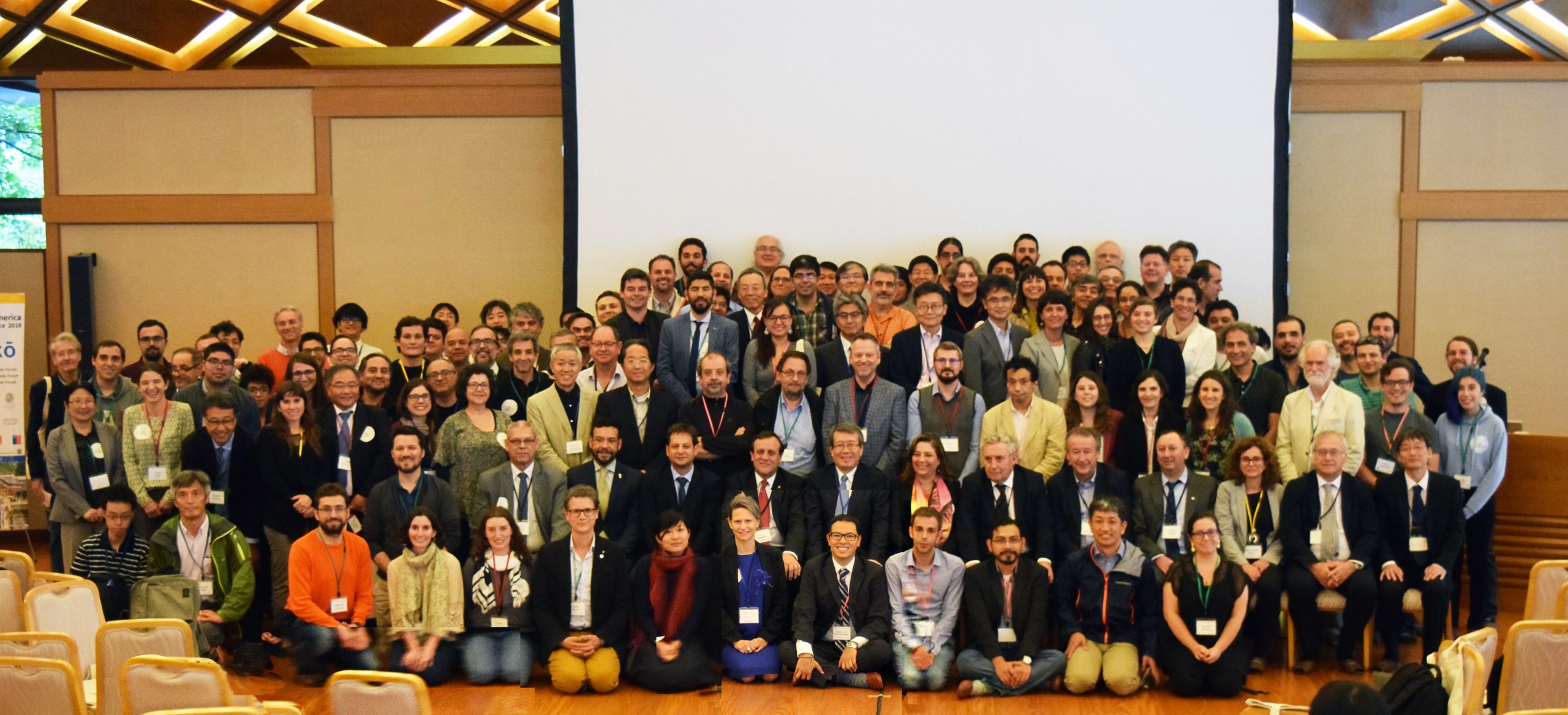Implementing a transversal institutional framework, promoting the training of researchers with a focus on doctorates, strengthening collaborative research and that the entire university community live an international experience, even if it does not cross borders, are the axes of the University Internationalization Project, supported by the Ministry of Education.

Internationalize the UC community. That is the goal of the plan that UC will develop in the next three years, supported by a fund from the Ministry of Education for these purposes. This achievement is the fruit of the work led by the Vice-Presidency for Research Affairs Office, in conjunction with the university’s Superior Directorate.
“The objective of this project is to expand the UC reach in a global context. We need to move forward to strengthen international management in the different areas of university work, with global integration ”, says Vice-President for Research Affairs, Pedro Bouchon.
This is the third stage of a project that began in 2013, initially with a focus on the internationalization of the doctorate through the Doctoral College Program. The second stage lasted from 2015 to date, seeking to promote the internationalization of research, both in priority areas of the university and the country, and in research within the territory, with the installation of the Network of Regional Centers and Stations – RCER UC. In this second stage, the design and implementation of the UC Graduate School began, as well as networking activities with the universities of Chile and Magallanes, such as forums and meetings with Japan, Sweden, Mexico and Colombia, among other countries.
We have advanced. While in 2014, there were 117 foreign professors at UC, today there are 170, representing 40% of new hires; and doctoral students went from 186 that same year to 319 today. Also, 13% of masters students and 33% of postdoctoral researchers are foreigners. On the other hand, 4,300 UC students have undertaken an exchange between 2012 and 2017, thanks to the 748 academic cooperation agreements that UC has with 507 institutions from 61 countries. In research, it stands out that 62% of the ISI publications published by our professors in 2017 were co-authored with foreign academics. UC has 54 international patents between 2012 and 2017, and this year, 50 projects are being executed with international funds.
“We must boost and promote international ties that enhance the exchange of academics and students, as well as the creation of collaborative research projects, co-supervision of doctoral theses, double degrees, and international publications. In this way, really advance towards a creation of frontier knowledge, which allows integrating different views, realities and knowledge”, affirms Director of Research Affairs Office, María Elena Boisier.
An international culture
Expanding the UC reach in a global context involves going far beyond what has already been achieved. The first thing is to establish an international standard management. That is, to develop a transversal institutional framework, with a strong articulation with academic units in order to achieve internationalization in all levels.
It seeks to especially strengthen the internationalization of the training of researchers of excellence with a focus on the UC doctorate, facilitating the mobility and attraction of talent, both nationally and internationally, with the aim of positioning UC as a global benchmark in training of people, with an emphasis on Latin America.
“For this, it is essential to create conditions that facilitate the acquisition of global skills during the doctorate, promoting the internationalization of curricula and the career development of students. The implementation of the Graduate School based on the experience of the Doctoral College Programs represents a privileged opportunity to support this internationalization project based on an innovative look at doctoral training, preparing researchers who are active participants in the academic concert , scientific and international social ”, explains Diego Cosmelli, director of the Graduate School Project.
Another important point is the formation of international networks and the strengthening of collaborative research. The objective is to consolidate research internationalization and knowledge creation in the university, promoting the joint development of programs and projects, based on strategic alliances.
All of the above makes it urgent to create an international culture in the UC community itself, that is, that all its members can live an international experience even if they do not cross borders. To this end, it seeks to promote visits, internships and exchanges of foreign academics, students and professionals, in order to increase contact with other people, ideas and realities.
“A fundamental part of the internationalization project objective is to create the conditions for the training of people capable of tackling global problems, with local impact, so we must not only create conditions to go out into the world, but also create conditions for an ‘internationalization at home’, at all levels, from students, academics, professionals, administrators and officials. This cultural change towards internationalization will be approached as a transversal objective through UC ”, says Ana María Sepúlveda, coordinator of the Internationalization Project.
The project contemplates a period of three years and seeks to involve the entire university community, and the different areas of knowledge, to incorporate internationalization at the heart of its work, generating both a global and local impact.